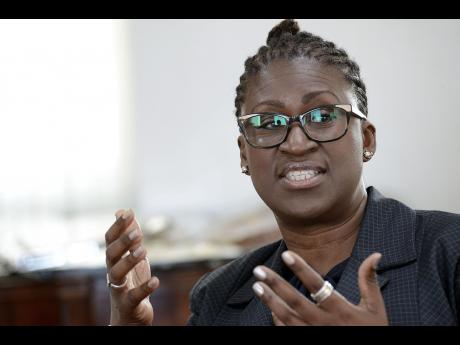Sexual performance big concern for men diagnosed with cancer
While the major concern for men diagnosed with cancer is their ability to perform sexually, women generally worry about their prospect for survival and how the disease will affect their finances, image and efforts to get pregnant.
"For some women, too, there is a genuine fear that their spouses sometimes might leave them," said Dr Venslow Greaves, a radiation oncologist at the Kingston Public Hospital.
The doctor told editors and reporters during a recent Gleaner Editors' Forum that as a result of this fear, some women do not disclose their diagnoses to their spouses.
"If you have a supportive spouse, you would be more willing to come for treatment," he said.
Gynaecologic oncologist and director for the Jamaica Cancer Society, Dr Matthew Taylor, finds that the prospect for survival generally supersedes all other concerns for the women he treats.
"For the majority of women who come to me and I tell them they have cancer, the biggest concern is 'am I going to die'?'" he said.
For most of the older women, however, the thought of dying is not something that causes them to lose much sleep.
"I have had patients who come and say they would rather die and give the money to their children than spend time and money on treatment that is not guaranteed to work, so cost is another issue," Dr Taylor said.
ABILITY TO HAVE CHILDREN
Once diagnosed, younger women are generally more worried about their ability to have children.
"You have women who are pregnant and get diagnosed with cancer who might lose that pregnancy. You have women who get cancer who haven't had any children, are newly married and want to have children," he said.
For both older and younger women, sexual issues are not such a big deal. The topic generally comes up after receiving months of treatment.
"Sex, to be honest, does not come up as an immediate concern for them. It comes up later and is more associated with the treatment, like if the treatment affects sexual functions," Dr Taylor noted.
Social and health psychologist, Dr Tracy McFarlane, finds that for men, their sexual prowess seems to supersede all other concerns.
"We have a gender difference in what people are concerned with. So, yes, for women, there are body image concerns, but what is primary is 'will this [cancer] come back', because it has implications for their roles as women'," she said.
"The men are also concerned about their lives, but from a cultural perspective. However, mainly for them is, 'if I have testicular cancer, if I have prostate cancer, what does this mean for my manhood'?'"




